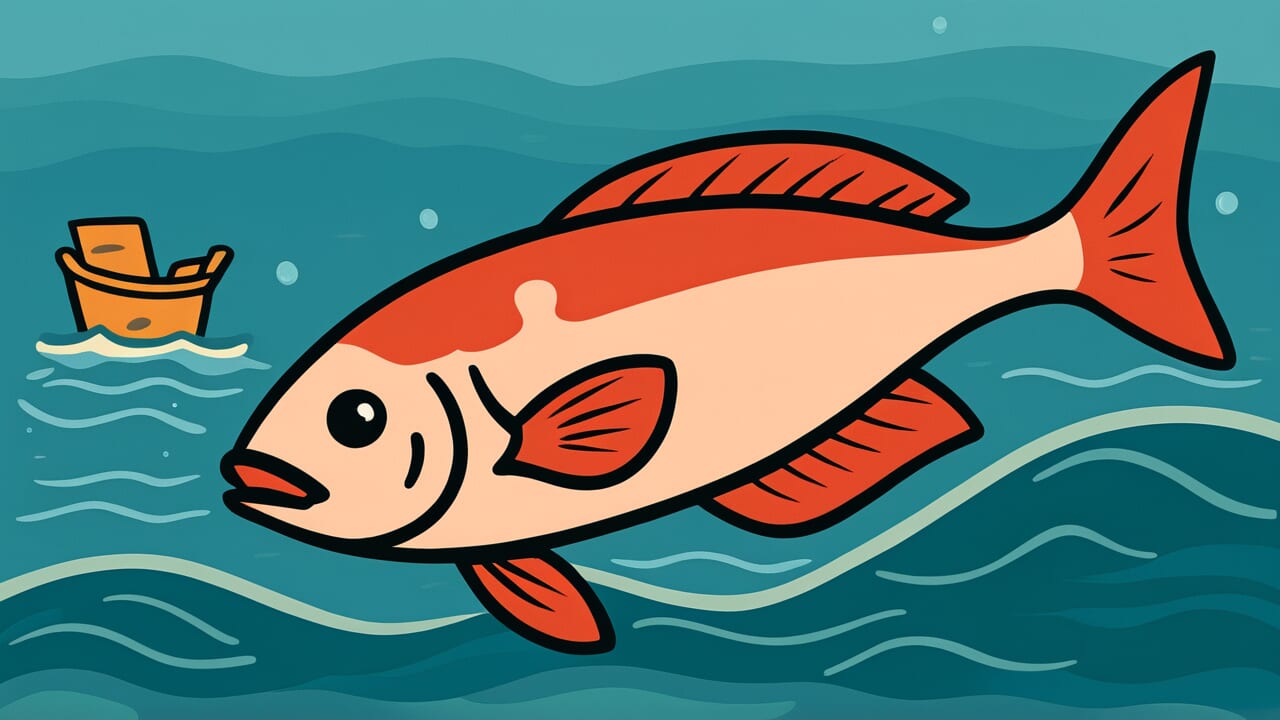How to Read “Among fish, the sea bream is best”
Uo wa tai
Meaning of “Among fish, the sea bream is best”
“Among fish, the sea bream is best” means that sea bream is the finest fish. This proverb describes something that stands out as the very best in its category.
People use this saying when something is so superior that nothing else compares. For example, when choosing the most talented person from many candidates. Or when picking the best option from various choices.
This expression works better than simply saying “excellent.” It emphasizes absolute value and status in that field. Just as sea bream holds a special place in Japanese food culture, this proverb points to something everyone recognizes as the ultimate standard.
Even today, people use this expression to praise something that overwhelms all competition in quality or ability. This proverb teaches us the importance of having an eye for recognizing the very best.
Origin and Etymology
No clear written records explain this proverb’s origin. However, it likely came from sea bream’s special position in Japanese food culture.
Since ancient times, Japanese people have considered sea bream essential for celebrations. The word “tai” sounds like “medetai,” meaning auspicious. Sea bream’s beautiful appearance, refined taste, and status as a luxury fish made it stand apart from all others.
Edo period cookbooks and essays frequently describe sea bream as the finest fish.
What’s interesting is the proverb’s definitive tone. It doesn’t just say “sea bream tastes good.” The phrase “Among fish, the sea bream is best” makes an absolute statement. It declares sea bream as the representative of all fish.
This simple, powerful expression contains Japanese people’s complete trust and high regard for sea bream.
The expression eventually became a metaphor for “the very best” in any field, not just fish. The idea that every field has its own “sea bream” reflects an interesting aspect of Japanese values.
Interesting Facts
Sea bream isn’t actually one type of fish called “tai.” Dozens of fish have “dai” in their names, like kinmedai, ishidai, and amadai. However, only a few species like madai and chidai truly belong to the sea bream family.
Many others received the “tai” name because they looked impressive or tasted delicious. The name itself represents people’s admiration for the finest fish.
Sea bream’s red color actually works as camouflage underwater. Red light doesn’t reach deep water, so the red body appears dark and blends in. This combination of beauty and practicality might be another reason sea bream earned its status as “the finest fish.”
Usage Examples
- If you want to succeed in this industry, remember that among fish, the sea bream is best—learn from the very best people first
- Rather than buying many cheap items, among fish, the sea bream is best—owning one truly good thing brings more satisfaction
Universal Wisdom
“Among fish, the sea bream is best” has endured because it speaks to our instinct to seek the very best. We constantly want to identify the finest option among many choices.
This desire isn’t just about luxury. Choosing the most valuable things with limited time and resources is wisdom for enriching life. In an age when we can have anything, the ability to recognize “truly good things” matters more than ever.
Interestingly, this proverb presents “sea bream is best” as an unquestionable fact. This shows the belief that absolute standards and ideals exist in any field.
We live with uncertainty, yet we also seek the conviction that “this is truly the best.”
This proverb also reflects a culture of comparison and choice. Among diverse options, we judge quality and select the best. This act isn’t mere consumption.
It’s the very process of establishing our values and improving our quality of life. Our ancestors condensed this essential human activity into simple words.
When AI Hears This
When the human brain expresses the entire category of “fish,” why does it choose sea bream from thousands of species? This is a problem of “representative value selection” in information theory.
When computers compress large amounts of data, they replace similar values with one representative value. Like expressing 100 people’s height data as “average 170 centimeters.” The human brain does the same thing.
To convey the huge category of “fish” in one word, it selects the species with the highest information value.
What’s interesting is that the selection criteria isn’t statistical frequency. Sardines and horse mackerel are most common in Japanese waters, but they aren’t chosen as representatives.
The brain uses a “weighted compression algorithm.” It assigns points for cultural value, clarity of visual features, and symbolic meaning. Then it selects whatever scores highest overall as the representative.
Sea bream gains overwhelming representativeness through multiplication of factors: the linguistic memory hook of “medetai,” high-contrast red and white colors, and cultural importance in celebrations.
This proverb shows that human information compression isn’t simple statistical processing. It’s a sophisticated selection system incorporating value judgments. AI compresses with averages, but humans compress with “meaning weights.”
This difference creates culture.
Lessons for Today
This proverb teaches modern people “the importance of having an eye for the genuine.” In today’s society overflowing with information and infinite choices, we easily lose sight of what truly has value.
What matters is knowing what your “sea bream” is. It’s not necessarily expensive or famous things. What should you truly value in your life? What quality should you pursue?
In work and relationships, prioritizing quality over quantity enriches your life. Rather than trying many things, invest your time and energy in what truly has value. That choice leads to your growth and satisfaction.
At the same time, this proverb teaches “the importance of aspiring to the very best.” The attitude of always seeking excellence without compromise. This isn’t arrogance—it’s a sincere approach to your own life.
Aim for the “sea bream” in your field and move forward step by step. That process itself will help you grow.



Comments